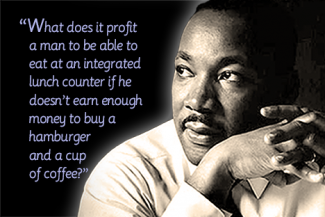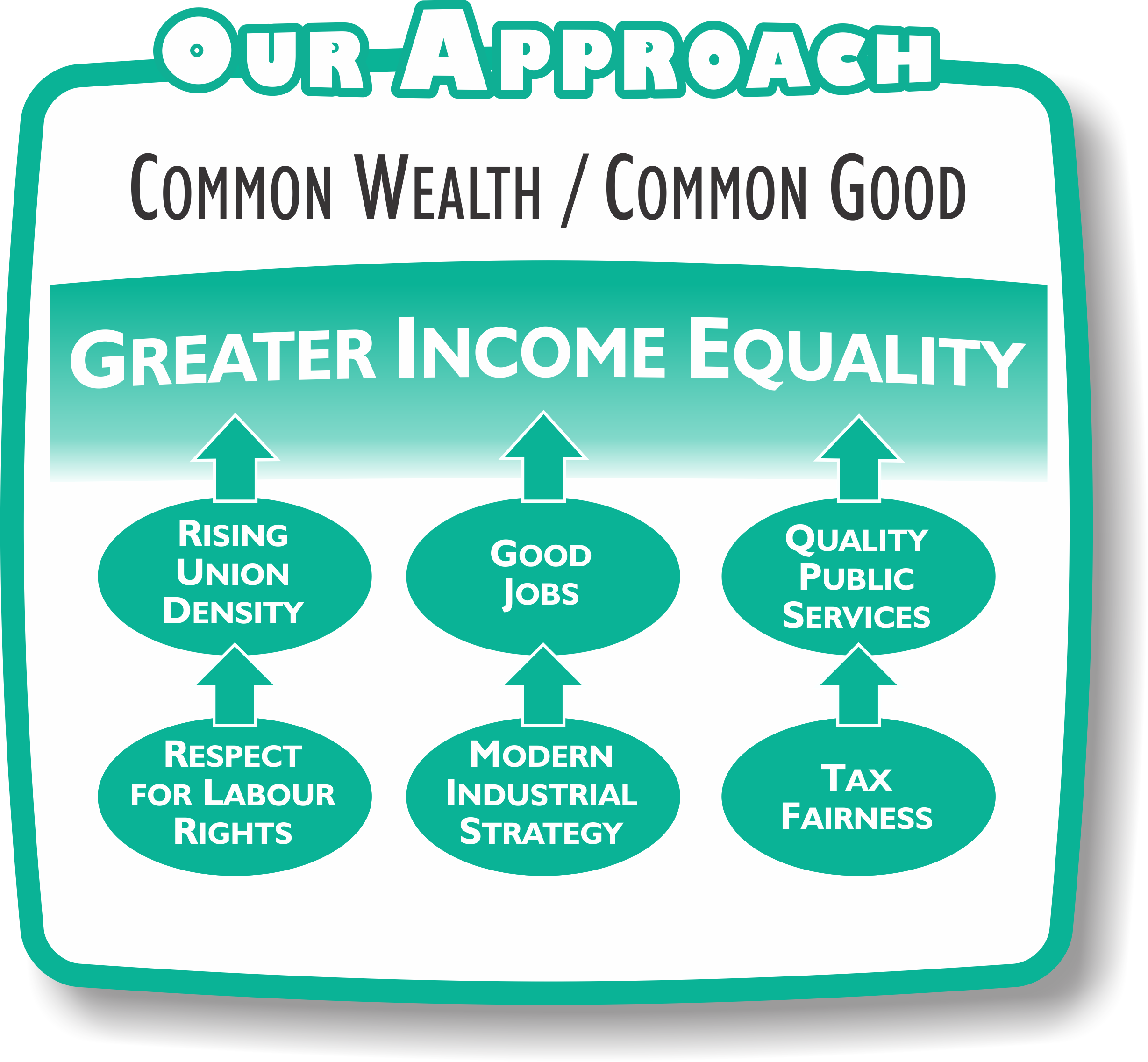MAKING HISTORY
Fighting systemic racism together for more than a month

BLACK HISTORY MONTH IS A TIME FOR US TO BE GLAD AND SAD.
Glad to celebrate the countless and many unsung achievements and victories of black people. And sad because, despite it all, we are still not free from the scourge of racial discrimination.
Black history IS Canadian history. The two should not be divided. Our common history must, and will, include standing with black Canadians until they are paid fairly, treated fairly, and given rights and respect every Canadian deserves.
Labour rights are human rights
Racism doesn’t just happen. It’s worse than that. Racism happens for a reason—a reason that has little to do with the colour of your skin and a lot to do with the value of your labour.
White people used African people as slaves. They didn’t to this because Africans had a different skin colour. They did it because they needed a source of cheap labour to work their plantations. Kidnapping Africans and turning them into slaves was the cheapest and deepest labour source of all.
This historic reality is a necessary reminder that human rights are labour rights are human rights. The fight for one is, time and time and time again, a fight for the other—regardless of skin colour.
As Dr. Martin Luther King Jr. said: “What does it profit a man to be able to eat at an integrated lunch counter if he doesn’t earn enough money to buy a hamburger and a cup of coffee?”
The truth about systemic racism in Canada
Systemic racism is hidden racism. It is often unconscious or unintentional, and may not be noticeable to anyone but the racialized worker. However, it’s effects are not hidden. It’s this type of behaviour and thinking that blocks black Canadian workers from getting the jobs, pay, promotions, and respect they work hard for and deserve.
In 2016, the United Nations Human Rights Council came to Canada to collect information about systemic racism in Canada. Their findings showed “deep concerns” about anti-Black racism in Canada, which the UN said could be traced back to slavery in the 16th century.
The UN working group laid out dozens of recommendations to redress past and present wrongs affecting Black Canadians, the first among which calls on Ottawa to apologize for slavery and consider issuing reparations.
The report says structural racism still “lies at the core” of many Canadian institutions—the direct result Canada’s history of racial segregation. The end result for black Canadians is low educational attainment, high rates of poverty, health problems and unemployment, along with the gross overrepresentation of black Canadians in the criminal justice system.
A culture of resistance and resilience
This reality was, and is, particularly punishing in Nova Scotia. Yet that is where, over the course of generations, black people have demonstrated “resistance and resilience” to develop a distinct culture, the report said.
The UN working group also called on the federal government to legally acknowledge black Canadians as a distinct group, one that has made and continues to make, “profound economic, political, social, cultural and spiritual contributions to Canadian society.”
Unions renew call for national anti-black racism strategy
Canadian unions have long been among the strongest advocates for racial equality and acceptance in Canada, both within their own unions and collectively as affiliates of the Canadian Labour Congress (CLC).
This year, the CLC marked Black History Month with the February 15 release of a special podcast called “Smoke and Mirrors: Uncovering Truths about Human Rights in Canada”. The podcast explores the history of anti-black racism in Canada and its legacy on society today.
“Black people in Canada are systematically disadvantaged in workplaces, criminalized and victimized by the judicial system, and discriminated against in public services and housing,” said CLC President Hassan Yussuff.
The CLC says an effective national anti-black racism strategy must include federal government action to:
- Create an intersectional national anti-black racism strategy;
- Institute criminal justice reform to address anti-Black racism in the judicial and prison system; and
- Mount an inquiry on the overrepresentation of Black children and youth in care of child protection services.
Ways you can fight racial injustice
- Stand up and speak up when you see a fellow worker or community member being bullied or harassed
- Create policies that address racism in the workplace
- Challenge yourself and your assumptions about racial stereotypes
- Speak up and against racist acts such as jokes, slurs, name-calling or graffiti
- 30-












Add new comment